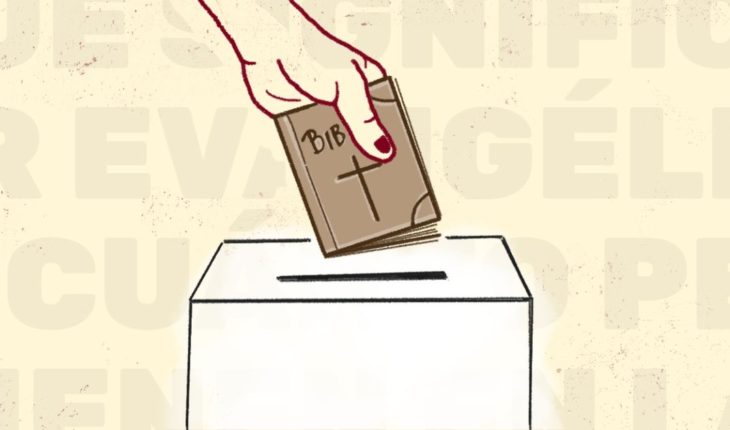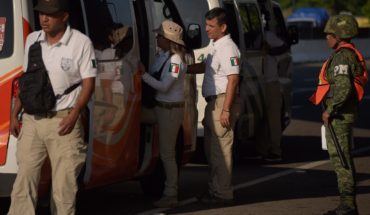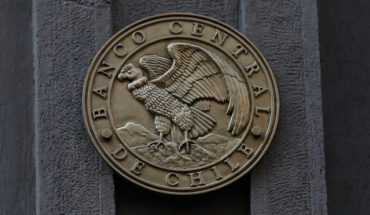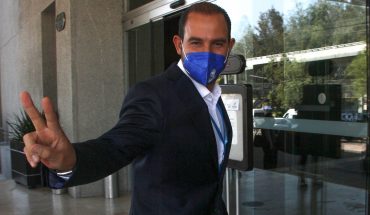I leave a perhaps erroneous basis which is that we all always have at hand the manual of how to define an evangelical in a few words or images, don’t we? God, sect, alluding and clear, that luck of waveful mass where everyone thanks with their hands up the Lord tops the list. But if I wonder about the differences with Catholics (other than showing joy), why they are a growing community or what place they can occupy in the wide world of national politics, stretched a few kilometers in election year, is that I fall on the point that I do not know much about the subject, in short, in the eventual error of overestimating or underestimating the matter.
What does it mean to be evangelical and how much weight do they have in Argentine politics?
So in this note, as preventive pessimism, we talk about evangelicals to understand or know how it is that in the face of the advances of individual freedoms and the conquest of rights, a portion of society congregates from spaces where smell monastic could give new impetus to the eroded legitimacy of Argentina’s political parties. Catholics or evangelicals?
The term evangelical comes as the detachment of the Protestant reform initiated back in the 16th century by Martin Luther. In this period is found the genesis, among others, of Protestants, Metodists, Mennonites and Pentecostals, the latter part of the evangelical branch that grew the most in recent decades. Evangelicals are Christians but not Catholics. The difference has many considerations that go beyond the note, but in general terms we can think that this group proposes that religious authority rest in the Holy Scriptures, the Bible. This is why while evangelicals have circumstantial leadership or institutions as representatives to the State (FAIE or ACIERA), the truth is that in contrast to Catholicism and its papacy, evangelicals do not contemplate a hierarchical structure of power , but the highest authority is the Gospel and its possible aspects are derived from the different interpretations there.
So as a first step we can understand that from a religious perspective there is a wide range of cults where anyone can be a shepherd and label evangelicals as homogeneous, is at least wrong. That same approach is what marks as a spill that common flags are built programmatically with other issues such as opposition to abortion, comprehensive sex education and the understanding, in tune with Pope Francis, that homosexuality is a deviation that must be healed. While the national sin of the lack of aggiornadas statistics did not have its miracle for this theme and the last survey dates back to 2008, we may think that there are currently about 5,000,000 people who define themselves as evangelicals. And the number goes forward.
Why do they grow? Contrary to the lights and flashes of the Universal Church of the Kingdom of God in the heart of Palermo, the practical-theoretical reading marks that have an unthinkable presence in the humble neighborhoods, reaching where often the Government does not arrive and where the Churches Receding. The theoretical-practical gaze adds to this that the evangelical does not travel the long pilgrimage of forgiveness that the Catholic does. There’s no purgatory here, no heavy inheritance. There is a present and a future. Why not in Brazil and in Argentina?
If we take into account our history, the current electoral system and the link religion – politics of the country, the truth is that there is not a single party or figure that captivates this community. At the moment, national evangelical political participation experiences were and are ineffective. Even more so if the counterpoint is our neighbor Brazil where local political identities, charismatic leadership and the electoral system allow what in Argentina does not. The Southern giant, in addition to having a system that facilitates the representation of leaders without the need for strong party structures and a more institutionalized historical process in this line, also has a monetary and communicative power Incomparable.
In our country the reality marks that transit is not to occupy executive positions of weight but to continue to gain territory and with the tuning of time eventually gaining experience in public management. This is why, while we are talking about a complex political situation and an international political reconfiguration in tune, at the time of voting, the evangelical behaves like the rest of the Argentines. Hallelujah. So, elections 2019, two readings. On the one hand, bad news for Gómez Centurión, Cynthia Hotton and those who presented theself as Providas of pure strain. On the other hand, it is no less true that a kind of Pentecostal political class is being shaped, participating in different sectors of the political arc, from Peronism to PRO, and that for now it is only gaining experience in public management and visibility.
You only need to go to the first week of the month to see specific indications: Macri received pastor Jorge Sennewald, Verónica Magario created a Undersecretariat of Worship that will be in charge of the evangelist pastor Gabriel Ciulla and the punished programming of Public TV He premiered the program “Good News” (meaning gospels or vice versa) of the Evangelical Church, the only newscast that the programming has on weekends. So again, the risk is to overestimate or underestimate the phenomenon and not perceive that the tandem religious and political alliances can promote or encompass agendas linked to sexual morality and the conquest of rights that feed back to political pragmatism as the only visible continuity can mean setbacks in this regard. Equal marriage, decriminalization of abortion, comprehensive sex education and gender ideology are some of the points of practical fellowship between a disbelieving electorate and a growing religious space that no longer whispers, screams. In this note:





